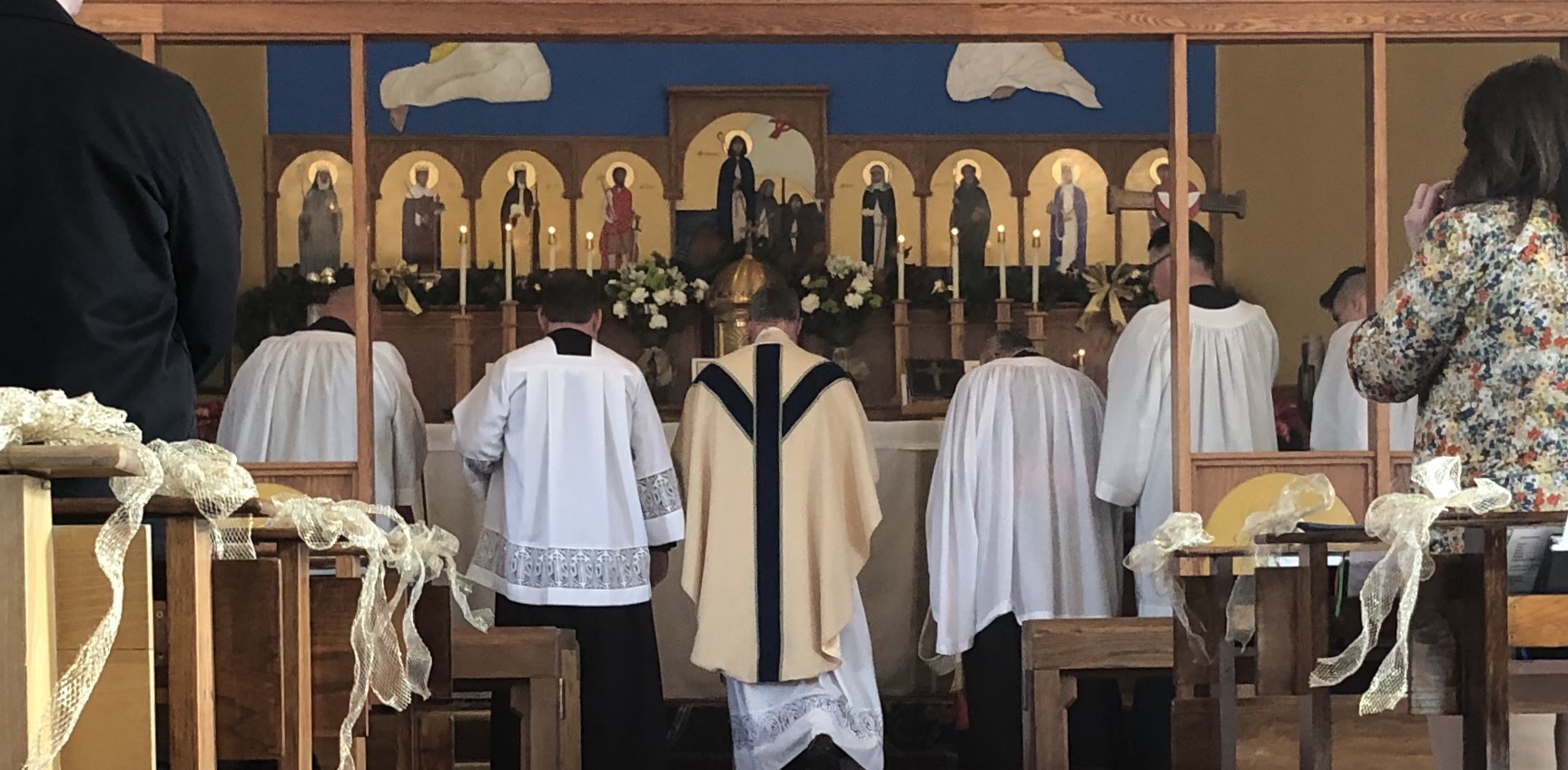Already before Advent begins, the liturgy speaks to us of fasting. Almost the first word we hear on the Monday prior to Advent is Joel 1, 14: ‘Sanctify a fast!’ Two days later we have Joel 2, 12-19, the same passage appointed as the epistle for Ash Wednesday. ‘Turn to Me with fasting and with mourning and with weeping,’ it declares.
When Advent itself arrives, the theme of fasting continues. In the Breviary we read from one of the homilies of St Leo on the Fast of the Ten Month, while the epistle at mass proclaims: ‘Let us conduct ourselves becomingly as in the day, not in reveling and drunkenness, not in debauchery and licentiousness … [M]ake no provision for the flesh, to gratify its desires’ (Romans 13: 13, 14), a kind of anti-manifesto to the worldly celebration of the ‘holiday season,’ which revives the hedonism of the ancient Saturnalia against which St Leo preached in his homilies.
Fasting is prescribed by all the world’s major religions; even in our unbelieving age it is extolled for the benefits it brings alike to mind and body. Our Lord clearly expects it of His followers: ‘When you fast,’ He says (Matthew 6, 16), not, ‘If, perhaps, maybe you fast.’
The reason we fast can be seen by looking at the archetypal sin, that of Adam and Eve. Adam and Eve sinned through gluttony – they saw the forbidden fruit, that ‘it was good to eat’ (Genesis 3, 6) and so they ‘made their god their belly’ (Philippians 3, 19). More fundamentally, their sin was an act of self-gratification, and it is this which is the essence of every sin – ‘I’ is in the middle of it. Fasting helps us combat this disordered love of self. This is why, too, one should ask for a blessing not to keep the fast, or to mitigate it: this, also, is an act of self-denial, self-denial which is one of the
primary marks of the disciple (Matthew 16, 24). By it, we ‘bring the body into subjection’ (1 Corinthians 9, 27), instead of being dominated by its yearnings and desires (Galatians 5, 24).
The fasting requirement of our Western Rite for Advent is very clear and easy: on Mondays, Wednesdays, and Fridays, only to eat one meal, or one meal and a snack, not to be taken before noon, and to abstain from meat and meat products. In so doing, we will be given pause for thought about what this time of year really means, a meaning often hidden and obsured by gluttony and materialism. The reason we celebrate Christmas is because Christ is born, becoming human to make us divine.
In His Love and Service,
Fr. David

